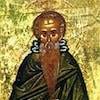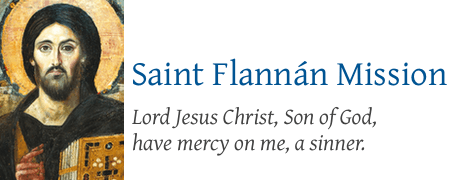 In the Name of the Father and of the Son and of the Holy Spirit, one God. Amen. Dear beloved, we remember the Holy Prophet Baruch, disciple of the Holy Prophet Jeremiah, and St Chariton the Confessor in Palestine, today. Prophet Baruch, St Chariton, pray for us!
In the Name of the Father and of the Son and of the Holy Spirit, one God. Amen. Dear beloved, we remember the Holy Prophet Baruch, disciple of the Holy Prophet Jeremiah, and St Chariton the Confessor in Palestine, today. Prophet Baruch, St Chariton, pray for us!
Life as we know it, is never an easy journey where we can simply meander and relax over easy labors and low-hanging fruits. Life is transient, fleeting, unpredictable, just as we reflect upon Ecclesiastes 9:11-12.
For many, life is a great challenge and an extreme struggle even, to meet even the simplest of needs on a daily basis. If some of us look to our right or our left, we may imagine the person we see having an easier life than us, even if each of us carries our own burdens, physical or mental, acute or chronic. What then, do we see when we embrace and confront life, whether in us, or in others?
In the Holy Scripture, we are told of many faithful who carried heavy burdens, and some carried what seems like insurmountable burdens that would break many of us and reduce us to desolation and even death.
The Book of Job is a frequent reminder, with the righteous man of God, Job, that heavy burdens we experience are not what we imagine as mere suffering, but important parts of our journey hoping to return or converge with God, especially under His Mercy and His Will. God intends that through our purifying burdens and trials, we become refined gold that would put us closer to Him. In the Book of Job, the narrative reminds us, that instead of trusting our own egos and reasoning, we are to only trust in the Divine Wisdom and Love from God Who would ONLY want to purify and strengthen us so that we can walk towards Him. God is not a punisher. God yearns for the best from us, and that is our joyous communion with His Will and His Mercy, because He wants the best for us, and that is eternal life. There is salvation even in suffering, as we reflect upon Job 19:25-27.
We are reminded in 2 Corinthians 4:6-15, that we will face trials and challenges, all different from each other. And yet, we who profess faith in Christ our Lord, through our hope, our repentance, our prayers, that we see Christ in us despite shouldering burdens that sometimes may even seem insurmountable and insufferable.
Likewise, as we reflect upon St Luke 6:17-23, we see a clear instruction that we are to bear the burdens entrusted upon us, and even the burdens of others, so that out of faith, humility, and love, we will inherit the Kingdom of God. There is no easy or low-hanging fruit promised, but that of a conviction and the carpe diem of however small a budding seed of faith we have in God, and to center that upon all that we do and hope to do.
Holy father among the saints, St John Chrysostom, in his homily on wealth and poverty, said, “Confess to the Lord and cry out to Him in prayer and in thanksgiving, and your burden will be lightened, because the evil one will retreat as God’s help arrives. If you curse however, you would have chased away God’s help, and sink more in suffering as the evil one becomes more vehement against you…”
Such was what St Chariton, spiritual father and confessor of Palestine, centered his life upon – that of compassion for those under his care, repentance and humility, and ceaseless pastoral labors for the sake of those he came to know. Despite facing terrible tortures, St Chariton did not forsake his faith in God. Even when robbed and nearly killed by robbers, he gave thanks to God. He founded a monastery and then other monasteries, and was a spiritual father and confessor to many who came to him seeking faith in Christ. St Chariton would never compromise his faith in God for an easy journey or to escape from tortures.
The Mystery, or Sacrament of Reconciliation (or Confession), is therefore a cornerstone in the Church, not to humiliate us, but to provide the ointment and medicine necessary for our healing when we partake in the Divine Liturgy. That is why we call it Reconciliation, with our Lord. The Mystery of Reconciliation is most clearly said in the Gospel of St Matthew 11:28, where Christ our Lord told us specifically, “Come to me, all who labor and are heavy laden, and I will give you rest”. Therefore, we find great solace when we lean on God, rather than lean on the worldly passions or the lures of the evil one.
Here’s a nice story told by Fr Seraphim. A young man wanted to renounce the world. But every time he wanted to leave, his thoughts upset him and entangled him in worldly matters, for he was rich. One day when he was leaving, his thoughts obsessed him and stirred up a great deal of dust in order to turn him back. Suddenly, having stripped and cast away his clothes, he ran naked to the monastery. The Lord revealed to an old monk in the monastery, “Get up and receive my athlete.” The old man got up, met the young man, and having learned of the situation, marveled, and gave the young man the monastic habit. Whenever people came to the old monk to ask him about thoughts of various kinds he answered them, but if they asked about renunciation, he said, “Ask my brother.”
When we look around us, physically or figuratively, what do we see? Do we see the salvific love and life of Christ our Lord even through the lens of suffering? Do we trust in the Mercy of God even in the intense fire of pain and humiliation? And in all that we do, do we profess the Holy Name of Our Lord, “Lord Jesus Christ, Son of God, have mercy on me, a sinner”?
Let us close by praying the thanksgiving prayer:
It is truly meet to call thee blest, the Theotokos, ever blessed and most pure, and the Mother of our God. More honorable than the Cherubim, and more glorious than the Seraphim, without corruption thou gavest birth to God the Word: True Theotokos, we magnify thee.
O virgin Theotokos, rejoice; O Mary full of grace, the Lord is with thee. Blessed art thou among women, and blessed is the fruit of thy womb, for thou hast borne the Savior of our souls, Jesus Christ our Lord. Amen.
Fr Raphael+
Readings
Job 19:25-27
Ecclesiastes 9:11-12
St Luke 6:17-23
2 Corinthians 4:6-15

